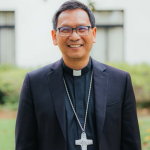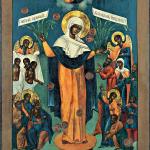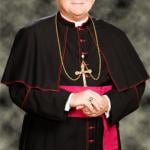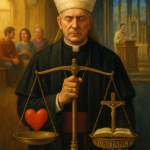Washington D.C., Nov 7, 2014 / 05:16 pm (CNA/EWTN News).- Defense of marriage advocates lauded a major 2-1 decision by a federal appeals court that noted the importance of children and sexual complementarity in upholding state laws defining marriage. “We are particularly heartened by the Court’s acknowledgment of the reasonable arguments for preserving the true definition of marriage and by the Court’s respect for the self-determination of states on this issue,” said Archbishop Salvatore J. Cordileone of San Francisco, chair of the U.S Bishops’ Subcommittee for the Promotion and Defense of Marriage. On Nov. 6, the Sixth Circuit Federal Court of Appeals upheld state laws in Michigan, Ohio, Kentucky and Tennessee that defined marriage as the unique relationship of a man and a woman. The ruling is the first big victory for marriage defenders at the federal circuit court level. It comes after the U.S. Supreme Court declined to hear cases involving marriage laws in five states early in October. The ACLU, representing the plaintiffs, has said it will ask the Supreme Court to review the case, and the National Organization for Marriage has also called on the Court to hear the case and uphold the marriage laws. “We have been awaiting this decision for some time and welcome it not only as a tremendous victory, but as a common sense recognition that it is not for the federal courts to substitute their judgment about whether same-sex 'marriage' is a good idea or not, but to leave it to the people to make the decision about this fundamental institution,” the organization’s president Brian Brown stated. The circuit court judges ruled that they did not have the constitutional authority to overturn a legal definition of marriage as determined by the citizens of a state. The majority opinion, authored by Circuit Judge Jeffrey Sutton and joined by Judge Deborah Cook, ruled that the state has the valid authority to regulate or define marriage, and that a fundamental right to marriage for every person does not exist in the Constitution. “Of all the ways to resolve this question, one option is not available: a poll of the three judges on this panel, or for that matter all federal judges, about whether gay marriage is a good idea,” they stated. Such a determination would make a “vital policy call for the thirty-two million citizens” of the circuit. “Better in this instance, we think, to allow change through the customary political processes, in which the people, gay and straight alike, become the heroes of their own stories by meeting each other not as adversaries in a court system but as fellow citizens seeking to resolve a new social issue in a fair-minded way,” the opinion concluded. Archbishop Cordileone’s statement, issued through the U.S. Bishops Conference, singled out one passage from the decision as worthy of particular praise, grounding the state’s authority to define marriage as between a man and a woman in the natural law. That passage stated, “It is not society’s laws or for that matter any one religion’s laws, but nature’s laws (that men and women complement each other biologically), that created the policy imperative.” In addition, the ruling noted the role of government in encouraging people “to create and maintain stable relationships within which children may flourish.” “By creating a status (marriage) and by subsidizing it (e.g., with tax-filing privileges and deductions), the States created an incentive for two people who procreate together to stay together for purposes of rearing offspring. That does not convict the States of irrationality, only of awareness of the biological reality that couples of the same sex do not have children in the same way as couples of opposite sexes and that couples of the same sex do not run the risk of unintended offspring. That explanation, still relevant today, suffices to allow the States to retain authority over an issue they have regulated from the beginning.” The states taking their time to consider the redefinition of marriage is not a violation of 14th Amendment rights of same-sex couples wishing to marry, the judges added. “A Burkean sense of caution does not violate the Fourteenth Amendment, least of all when measured by a timeline less than a dozen years long and when assessed by a system of government designed to foster step-by-step, not sudden winner-take-all, innovations to policy problems.” Not everyone has the fundamental right to marry, they stated. “But the right to marry in general, and the right to gay marriage in particular, nowhere appear in the Constitution. That route for recognizing a fundamental right to same-sex marriage does not exist.” Another organization praising the decision was the legal group Alliance Defending Freedom, which filed a friend-of-the-court brief alongside state legislators or pro-marriage groups upholding the state marriage laws in Tennessee, Ohio, and Kentucky. “The people of every state should remain free to affirm marriage as the union of a man and a woman in their laws. As the 6th Circuit rightly concluded, the Constitution does not demand that one irreversible view of marriage be judicially imposed on everyone,” Alliance Defending Freedom senior counsel Brian Babione responded to the decision. Read more
















